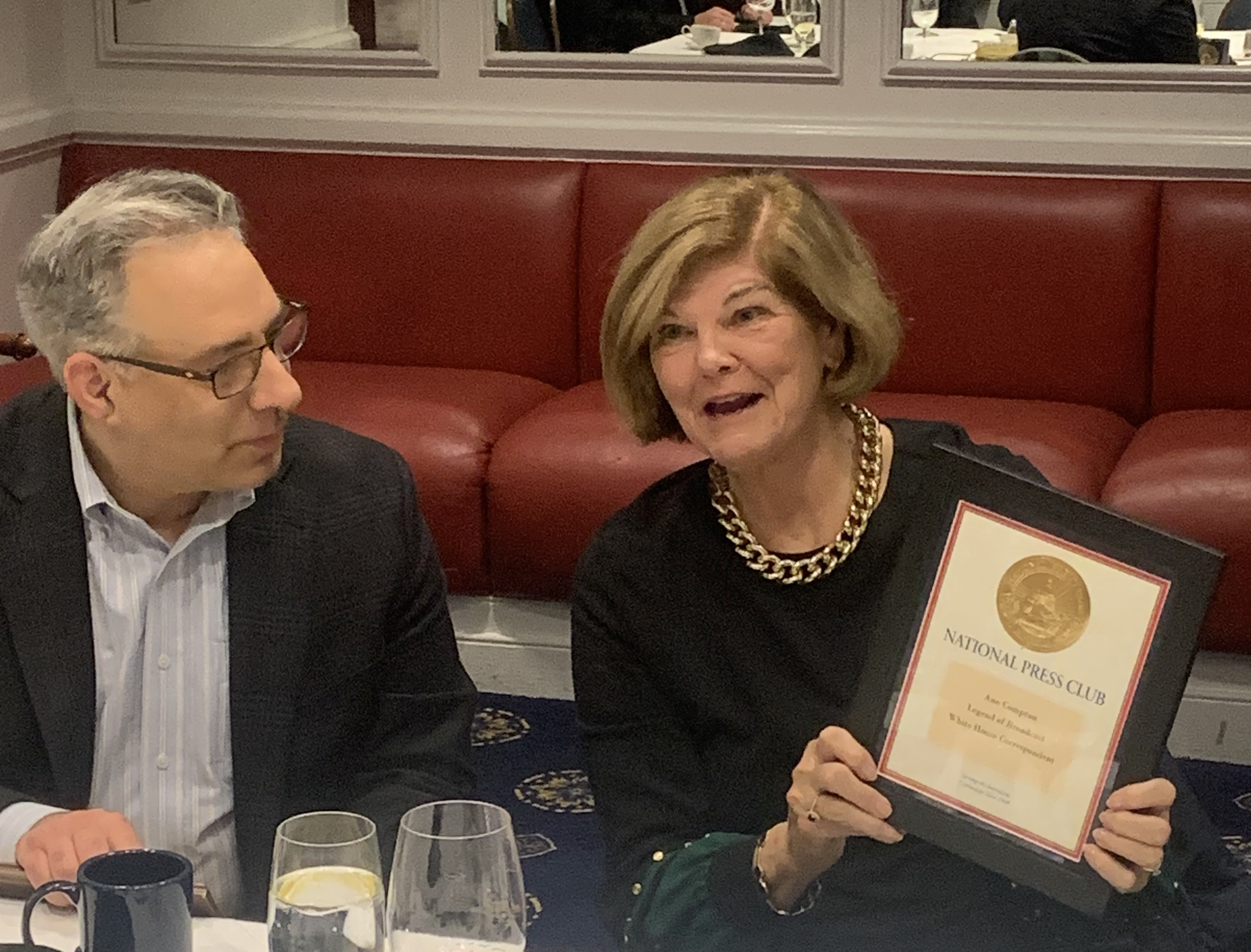She tracked those changes administration to administration.
For example, Compton and a film cameraman "who could ski backwards" interviewed President Gerald Ford on the slopes at Vail, Colo. At the end of the downhill chat, Ford asked if she needed anything else. She joked that she didn't have any film of the president falling down. He proceed to go forward and fake a wipe out. "Ford wasn't afraid of the press." That film had to be transported to an ABC affiliate in Denver to be processed and transmitted to the network.
By the Carter administration TV crews had videotape and could produce and edit reports at the scene without having to send film to the lab for processing. Carter had news conference every other week.
By 1980, there was CNN and people could watch news all day. When weekly Saturday presidential radio addresses began during Ronald Reagan's time in office, Compton would bring her kids with her to the White House, occasionally letting them out into the Rose Garden to play. Reagan would sometimes venture out to talk with the children giving Compton exclusive time to chat with another source.
By the first Bush administration "everything was on paper" with statements, schedules and announcements copied and distributed in bins in the press room. More paper, less give and take in face to face communication.
In Bill Clinton's term, the press office was communicating with reporters via fax machine churning out "buckets of information, "meaning reporters were "dealing with paper, not with staff." Personal connection with the White House insiders became weaker, she said..
And, bloggers could reach an audience immediately through the internet. Compton pointed out that it was "The Drudge Report" that first revealed President Clinton's relationship with intern Monica Lewinsky. Although Clinton withdrew from the eye during that period, he did quietly engage White House press corps regulars after being impeached and acquitted, inviting five of them to an off the record dinner conversation at a Guatemalan restaurant in Washington. The president was in "a very reflective mood" that night, she said.
Similarly, George W. Bush once invited about 20 White House regulars to the family quarters to "explain what he was doing and why."
As technology continued to change story filing procedures, Compton was issued a "comet phone," from which she could directly dial the ABC control room and go live from the camera in the phone from anywhere with a cellular signal. Still, she cherished that the Obama staff would meet with reporters in the Roosevelt room every Friday afternoon for a background briefing.
Compton worries about the latest technology that could allow anyone with technical skills to create deep fake photos or fake, yet convincing audio clips. She repeated, "we need responsible journalists."
Responding to a question, Compton said her most memorable coverage started in a second-grade classroom in Sarasota, Florida., on Sept. 11, 2001, when George W. Bush chief of staff Andrew Card interrupted a presidential school visit to tell the commander in chief that "a second plane has hit the second tower. America is under attack." "No one interrupts the president," Compton said and it was her cue that something big was happening. She instinctively checked her watch and jotted in her notebook, "9:07 a.m." She spent the next ten hours on Air Force One as the TV pool reporter, reporting from her flip phone.
She refused to name a "favorite president," but said her favorite times covering the White House came at the beginnings of new administrations "with a new cast of characters and new issues." The worst time was when there was personal scandal involving the president because it shifted the daily news focus away from the bread and butter issues that viewers want to stay informed about.
Another Legends of Broadcasting dinner, open to all members of the Club, is planned for the spring.

